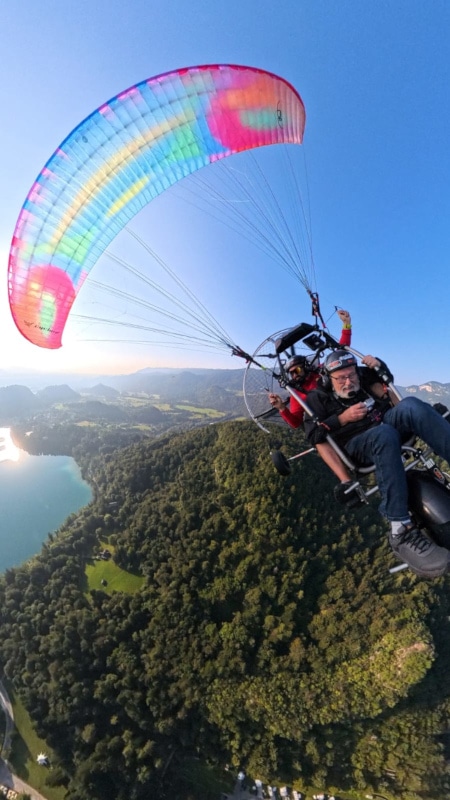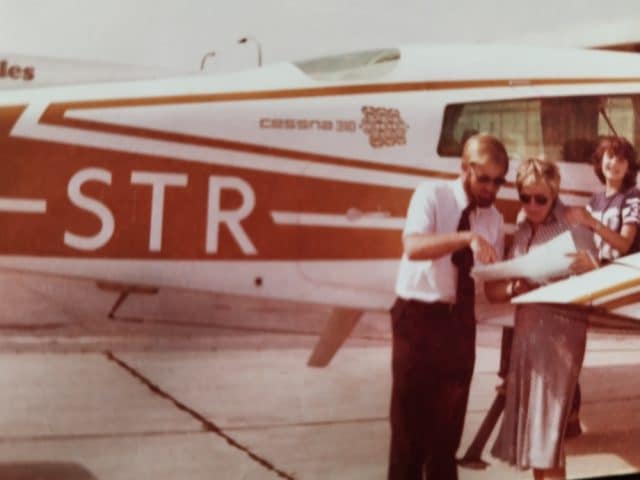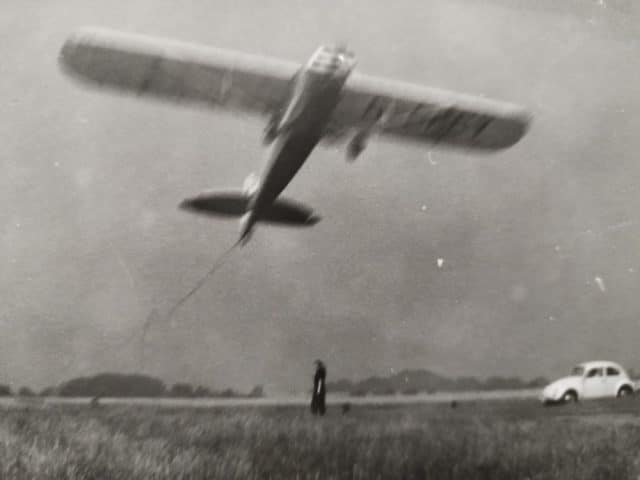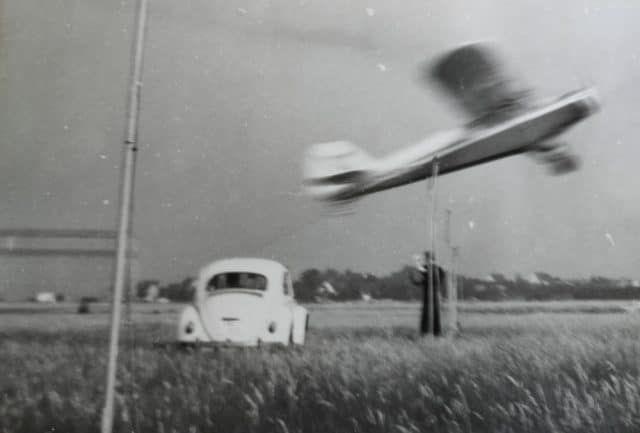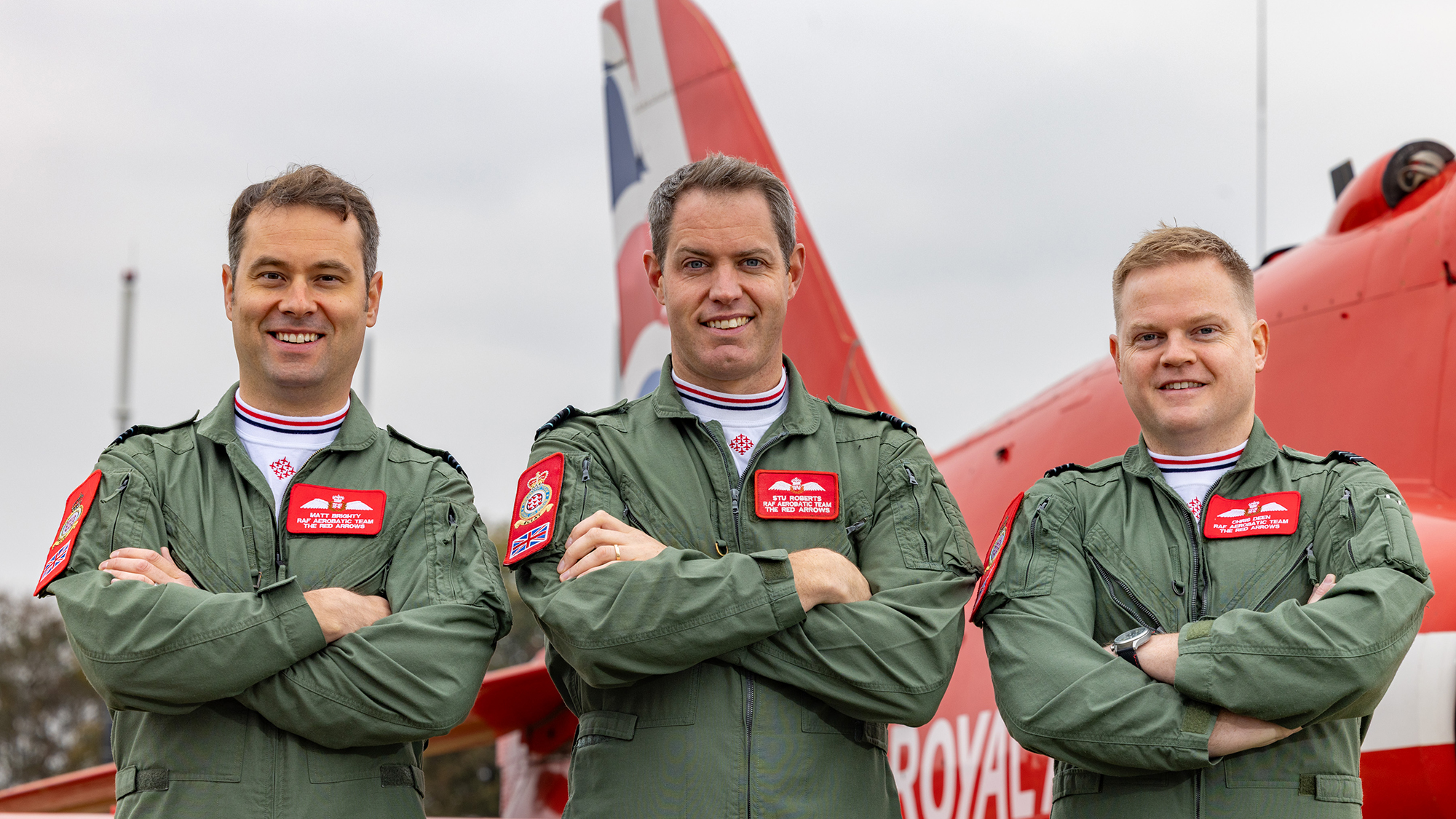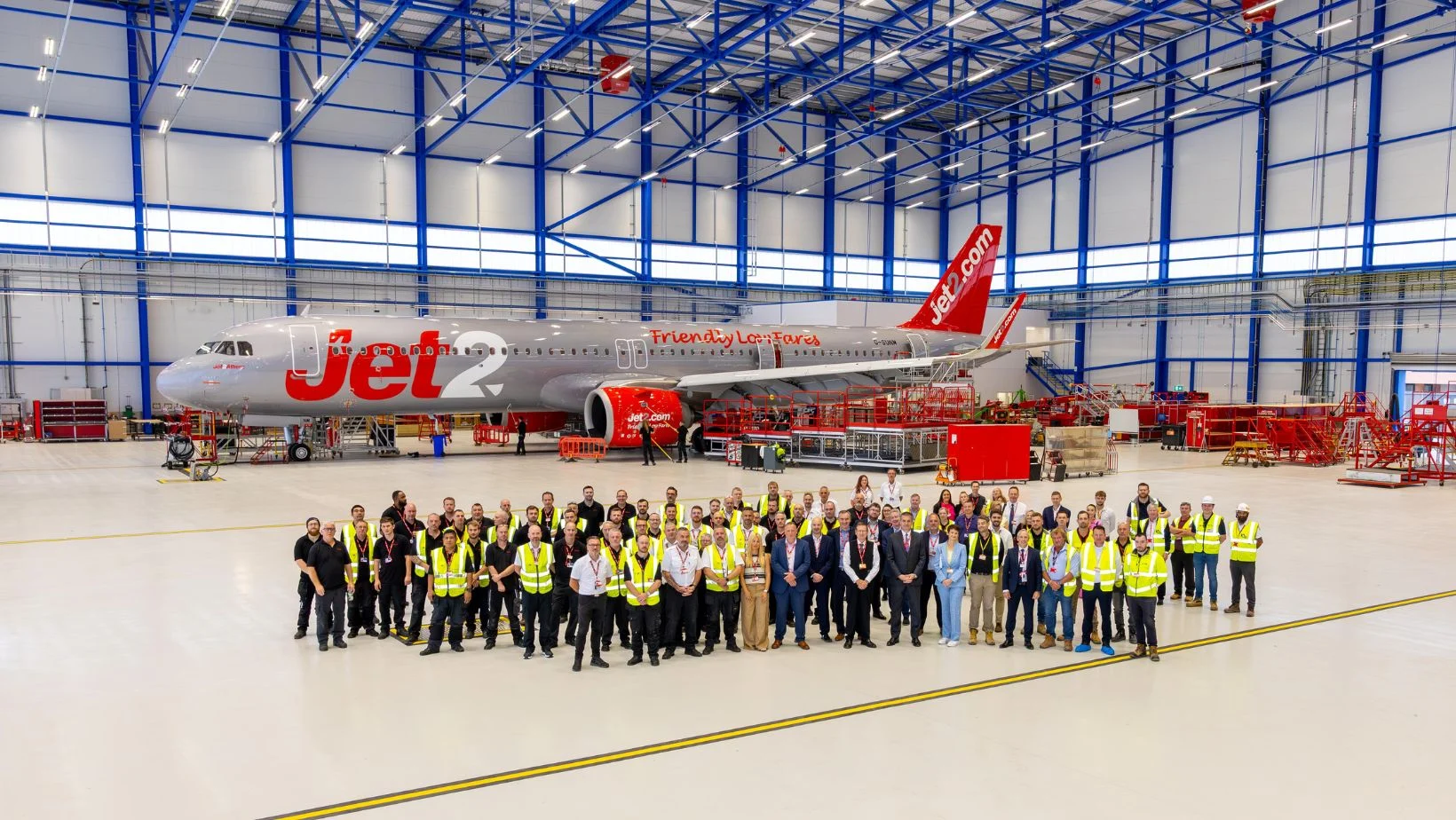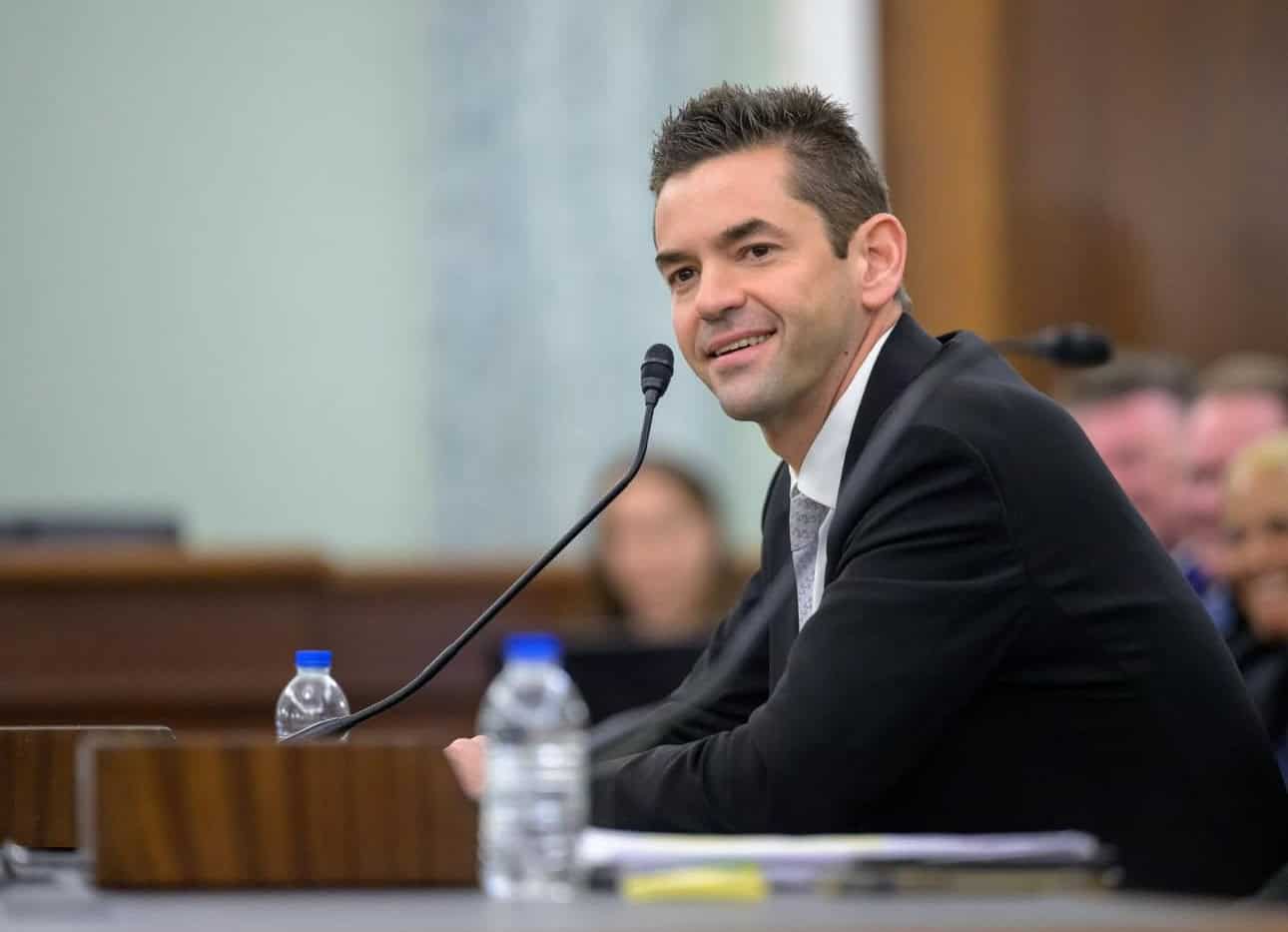I’ll be travelling for the next few weeks but I am glad to say I’ve got some great content lined up for you, starting with a new guest post from Rudy! I’m sure you’ll love the final image as much as I do. Please give Rudy a warm welcome and say hello in the comments!
22,000 Hours and a Lot of Luck
by Rudy Jakma
Old soldiers never die…
But what about old pilots?
Especially old and bold pilots?
Well, Sylvia has published some of my flying adventures and misdemeanours.
To some I added a caveat: like “don’t do this at home”, or more accurately: I was lucky that I got away with it.
One thing that strikes me though is that without really being aware, without realising at the time, I seemed to have been able in stressful conditions to assess my options and come to conclusions that, implemented, brought the situation under control.
Like when I ran into deteriorating weather conditions at my first solo cross-country flight over the African jungle, made accurate dead reckoning calculations, diverted on the basis of “dead reckoning” and finished the flight. By that time Lagos (DNLL) had told all IFR traffic to go in the holding to allow me to land. In a downpour, I saw the airport only when I was dead overhead.
Legal? Absolutely not. And looking back, I still wonder how I did it. So did Colin, my instructor. He was not impressed, he was furious.
Later, with a PPL, I flew journalists to Enugu. It was a Cherokee 160, 5N-ADC. The Nigerian army was winning the civil war with breakaway Biafra. Enugu (DNEN) had been liberated and the journalists had been granted permission to visit the war zone. A commercial aircraft was not available, so I took my chance: We would share the cost. I would pay 1/4, the 3 journalists contributed 1/4 each. They had the official military permit with them, which was accepted by ATC so they released us. The only VHF frequency available, Enugu was still right behind the front, was 121.5. But no matter what, there was only silence when I tried to contact the tower. There was no other traffic and there was a cloud layer ahead. So, instead of descending I kept my altitude and soon found myself in IMC. I radio’ed my intentions blind and just continued on instruments. With only a basic horizon, altimeter and gyroscopic compass. Not even an NDB. At that time, I was a newbie PPL, about 100 hours or less in my logbook. When I calculated that I should be nearly at my destination I called again to “all traffic” on 121.5, started a descent and… found myself nearly spot-on on final approach.
I called several times, but ATC only responded after I was already on the ground.
I was met by soldiers in a jeep and was arrested. Nobody had been informed of our arrival, nor did the permission from army HQ ever arrive. The communications had been very sketchy. But the journalists carried a hard copy. Soon a few officers arrived and the journalists were whisked off to their tour of the war front.
The soldiers were now very friendly; they told me that they had been about to open fire, but I had already landed. What had saved me was that they had been expecting one other aircraft, also white with blue stripes. That aircraft’s ETA had been an hour later, but it had stopped them from shooting me down.
It soon landed, a DH Beaver of Aero Contractors of Nigeria. It departed after a short stop. I was told to wait. After some more hours, another officer arrived. He told me that the journalists were staying overnight and I had to return the next day to collect them.
This was not expected and I did not really like to return again without proper clearance. The permit from Army HQ was with the journalists. But Nigeria was at war and under martial law. I was issued an order, and that was it.
Then I had a brainwave. I asked the soldiers if they had any beer. “NO”, they replied sadly.
“Well”, I said, “I will return tomorrow with this same aircraft. Do you think that you will recognise it?” Of course, they would.
“I will return without passengers and will bring be able to bring a few crates of beer. So if you shoot me down, you will shoot your own beer down!” That they could understand.
And right then, just as I was getting ready to depart, another jeep arrived with 3 civilians. They looked Indian, I never knew. But I was ordered to drop them off at Warri.
Warri was a private airstrip belonging to Aero Contractors, PPR but well, I was given the order. By military authority. So I did what I had been told. I dropped them off but as I wanted to depart for Lagos I was approached by one of the AC pilots.
A few days earlier, one of their aircraft, a nearly new Piper Navajo, had run out of fuel due to a misreading gauge and made a perfect deadstick landing near a village in the Niger Delta. There were no roads and the swampy riverside did not support anything but a dug-out canoe. The aircraft was undamaged, but had to be written off. The engines and other salvageable parts had been removed using helicopters. That included the for the time very up-to-date instruments and electronics. They had been exposed to salty air and had to be brought to the radio workshop urgently for cleaning and preservation.
The pilot – I think he was Norwegian – was departing to Lagos with 5 passengers in an Aztec and had to make a choice: either leave two passengers behind, or the electronics. Would I be so kind to take the two passengers?
That I firmly refused. I was a PPL. I had been in the grey area when taking the journalists, but carrying fare-paying passengers would be firmly “outside the pale”. But why would he not give me the electronics? I would bring them to Lagos for free, as a courtesy.
He hesitated, they were still worth a lot of money. He could not just hand electronics, still worth thousands, to a PPL. “Well”, I said, “if you leave them behind, corrosion will make them worthless.”
In the end, he saw my point and I delivered the electronics at the door of Aero Contractors (incidentally, a main competitor of my employer, Pan African Airlines of Nigeria).
The next day I went to the shop and bought beer before I returned to Enugu. This time, the radio was active with an immediate response on 121.5: “Do you have the stuff ?”
“Affirmative.”
“Clear to land.”
I barely had time to turn the engine off before the beer was out of the aircraft.
Soon the journalists arrived and the return flight was uneventful. But the story does not end here, not yet: the CAA had received an anonymous tip that I had made an illegal commercial flight. Fortunately, the journalists had paid me by cheque, and when compared with the bill from Lagos Flying Club, it was apparent that I had shared the cost, and paid my 1/4 part.
Next, I received a very substantial invoice for landing fees at Warri. I went to their office, only 100 m. from the Ops Dept. of Pan African. I explained that I had been ORDERED by the military to drop off 3 people and besides, I had safely delivered valuable equipment to them free of charge.
This happened shortly before I was to return home as I wanted to obtain qualifications, either as a qualified dispatcher or, as so happened, pursue my dream to obtain a CPL.
Aero Contractors was a division of Schreiner Airways, a Dutch company and they hounded me with their bill even after my return.
I refused, never paid. One of their pilots whom I got to know in Nigeria lived in The Hague. We met after his return and he settled the matter for me.
I signed up for a CPL course with theory for the instrument rating. But when I eventually did get my CPL, there was virtually no work. Even for “banner towing” jobs, pilots were queuing up.
Eventually I did get work: In Germany: Yes, banner towing.
And after three years, two in Germany and then in the Netherlands, I got a break. By sheer luck I met a Transavia captain who was looking for a pilot to act as a safety pilot for a wealthy businessman who had just bought a brand-new Cessna 310, PH-STR. That became a permanent job, extremely enjoyable but not highly paid.
I flew that C310 for 7 years, 3700 hours. Then the company bought a new Cessna Citation.
That was just a move too far, too expensive. So I was made redundant.
Corporate flying was excellent to learn “real” instrument flying and take care of every aspect of the job.
Nowadays, airline flying to me seems more like a very expensive computer game.
The regulations are necessary, of course, but pilots are screened off from part of what was so enjoyable in flying. Yes, the pay is 3-5 times higher than for a corporate pilot, at least in my time.
But the mindset of many airline pilots is fixed by rules, regulations and electronics. That is a good thing, but sometimes I have the feeling that pilots forget to think, let the advanced systems take over. Of course, there are many pilots who still enjoy flying rather than letting the computers do the thinking. But I can’t help thinking that the advanced computers in aircraft are starting to take over the “thinking”.
Reading some of the accident assessments, posted by very experienced instructors, about fatal air crashes, I often realise that I had been in similar conditions. Often very much worse, with far less experience at the time, and in aircraft without any instruments or navigation equipment. No more than a little liquid compass and a VHF radio.
But who am I to lecture on the subject?
Imagine flying a Piper Super Cub, towing an advertising banner when the cloud base goes as low even as 50 feet, and visibility probably no more than a few hundred metres. We flew “IFA”: I Follow the Autobahn. Which was so close below that there was the risk of the banner getting in the high tension wires that were strung along the road. The nearest major airport, Frankfurt am Main (EDDF) was closed to all traffic due to the weather conditions. We still made it to Egelsbach.
Flying non-stop from Dublin to Schiphol Amsterdam at night, mid winter. In a Cessna 172. It had long range tanks. I probably had less than 50 hours actual time flying on instruments.
Halfway across the North Sea the weather turned very rapidly from CAVOK to zero.
So did the UK, so did my alternates Rotterdam and Brussels. Dusseldorf (EDDL) would have been at the extreme limit of the range of the Cessna. With no guarantee that Dusseldorf would not go down in dense fog as well.
I decided to land at Schiphol. In the early ‘seventies the C172 only had basic instruments, no more than that. Even a transponder was not yet mandatory. So a little horizon, the crosshair ILS, VOR, ADF, airspeed, vertical speed and gyroscopic compass. The type that had to be reset every 15 minutes. Visibility had dropped to less than 100 metres, vertical visibility zero. Sky obscured, fog. No, I am not making this up ! I flew one of the most accurate instrument approaches that I ever managed, I never saw any approach lights until I was well below 50 feet, and saw a glare below me. The glide slope dropped but the localizer was still dead centre, so I carefully lowered the Cessna and touched down. Perfectly, on the runway centreline. The glare had been of the touchdown zone lights.
The “Follow Me” who had been sent out to meet us on the runway (there was no other traffic, the airlines had all diverted) needed ATC ground radar to guide us to the parking.
He was very surprised when he saw a Cessna 172 that had landed in cat 3 conditions.
Did you know that a Cessna Citation can be landed with a crosswind component of 42 kts?
No, don’t try it.
Now the big question: what do I want to tell Sylvia’s loyal readers?
Sometimes stupidity can give us a false sense of security. “All under control”. Usually panic takes over with the realisation that the situation is NOT under any kind of control. That is where the dominoes start falling, one by one. But it seems that I remained in that utterly false sense of security. Things should not have been under control but I remained dumb, fat and happy. At least, I kept making calculations, gauging the options, adjusting my actions and … by some miracle the BOLD pilot became the OLD pilot.
And again, if you are active pilots: I must urge you to stick to the rules. Even though I remained cool in some potentially “killer” situations, the added factor was that
My Luck Did Not Run Out!
There were situations, of my own making, when nothing happened. Although I was in a situation that just as easily could have ended in the accident reports, or in an aviation website like Sylvia’s or Hoover’s Pilot Debrief.
This is what I want to tell, apart from a tall story.
I don’t want anyone to find out the hard way that “luck” has taken a day off.
Leaving only the consequences of taking too much risk.
Because all this is absolutely true. I was lucky. I was cocky. I was perhaps overconfident. But looking back, I must nevertheless have had excellent basic piloting skills.
As well as luck. A lot probably.
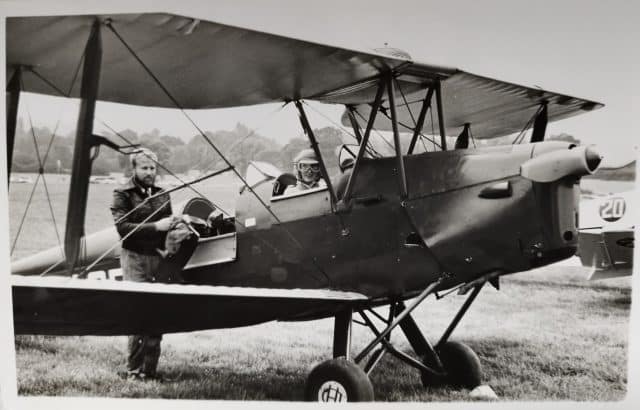
I ended my career having accumulated over 22000 flying hours.Officially a flight starts when going “off block” and ends when the wheels are chocked, or the parking brake is set.
Often that taxi time, at busy airports, can total more than 15 minutes. I only logged actual flying time, plus maximum 5 minutes taxi time. So I may well have exceeded 23000 hours.
Without accidents.
I don’t want to make you think that I am boasting.
No, I don’t have to; at this time I am over 82 years old and there is no way that these transgressions can affect my flying career. So I can write about it.
I stopped when I was over 65, when at an aviation medical examination – my last one – I was told that I needed to pass more stringent requirements.
But at that ripe age, I would no longer meet the criteria to exercise the commercial privileges of my ATPL. So that was the end of my career. The Tiger Club rented out a Tiger Moth (G-ACDC) for next to nothing, but now ? Flying for pleasure has become very costly.
I still look up when I hear a light plane. We live very close to Weston, west of Dublin. But I still read (and occasionally write) about it.
In January I had a triple bypass operation. Still recovering, we went to Slovenia and Croatia for a vacation.
My daughter, always “in” for something unusual, spotted that there was the possibility to go for a motored paragliding trip. She was enthusiastic and convinced me, 82 year old cardiac patient, to go up as well.
And yes, I did.
Absolutely fabulous, to paraphrase a TV comedy. 40 minutes above and around Lake Bled. I would do it again.
Well, that’s all folks. From your (still) “flying granddad” with love!
